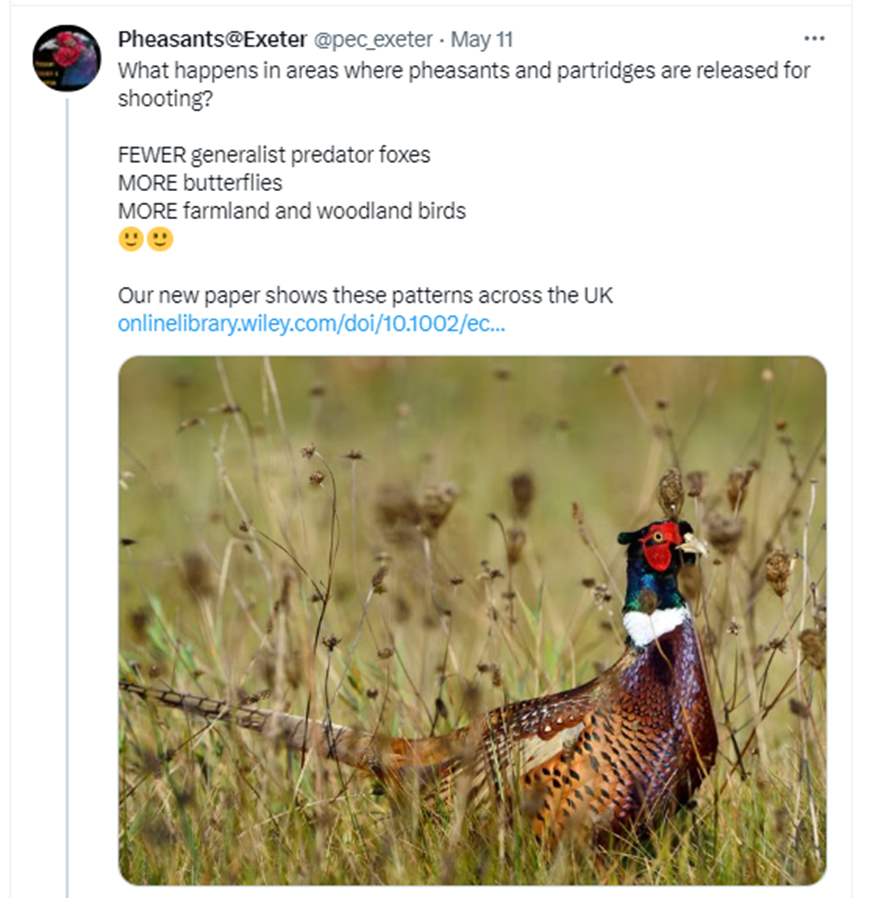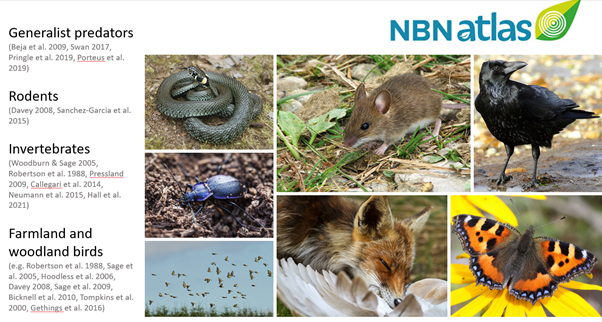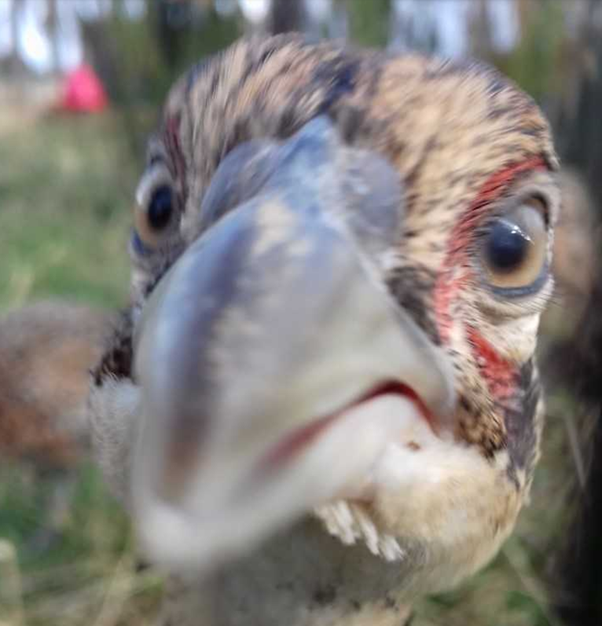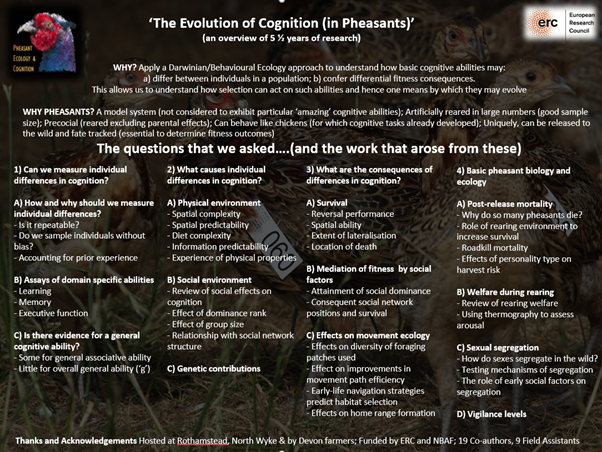
Studying how natural selection shapes cognitive performance using the genius of the bird world - Pheasants. Tweets by Jo Madden (available on other platforms)
How to get URL link on X (Twitter) App



 For each tweet, I linked the underlying paper available to all AND a 2nd tweet warning the headlines were not ALL the results, linked to a thread that described the nuance and limitations of the study. This thread provided a neutral control
For each tweet, I linked the underlying paper available to all AND a 2nd tweet warning the headlines were not ALL the results, linked to a thread that described the nuance and limitations of the study. This thread provided a neutral control

 Relationships with e.g. generalist preds, corvids, rodents, butterflies, beetles, farmland & woodland birds) have been studied individually, often on a few sites or over a short time period. We used
Relationships with e.g. generalist preds, corvids, rodents, butterflies, beetles, farmland & woodland birds) have been studied individually, often on a few sites or over a short time period. We used

 It's a Rapid Evidence Assessment, so didn't set out to make specific recommendations. Policy makers may use this evidence for future decisions
It's a Rapid Evidence Assessment, so didn't set out to make specific recommendations. Policy makers may use this evidence for future decisions
 @ERC_Research It’s a lot of work (39 papers/completed manuscripts); the product of a fantastic team of researchers & collaborators.
@ERC_Research It’s a lot of work (39 papers/completed manuscripts); the product of a fantastic team of researchers & collaborators. 